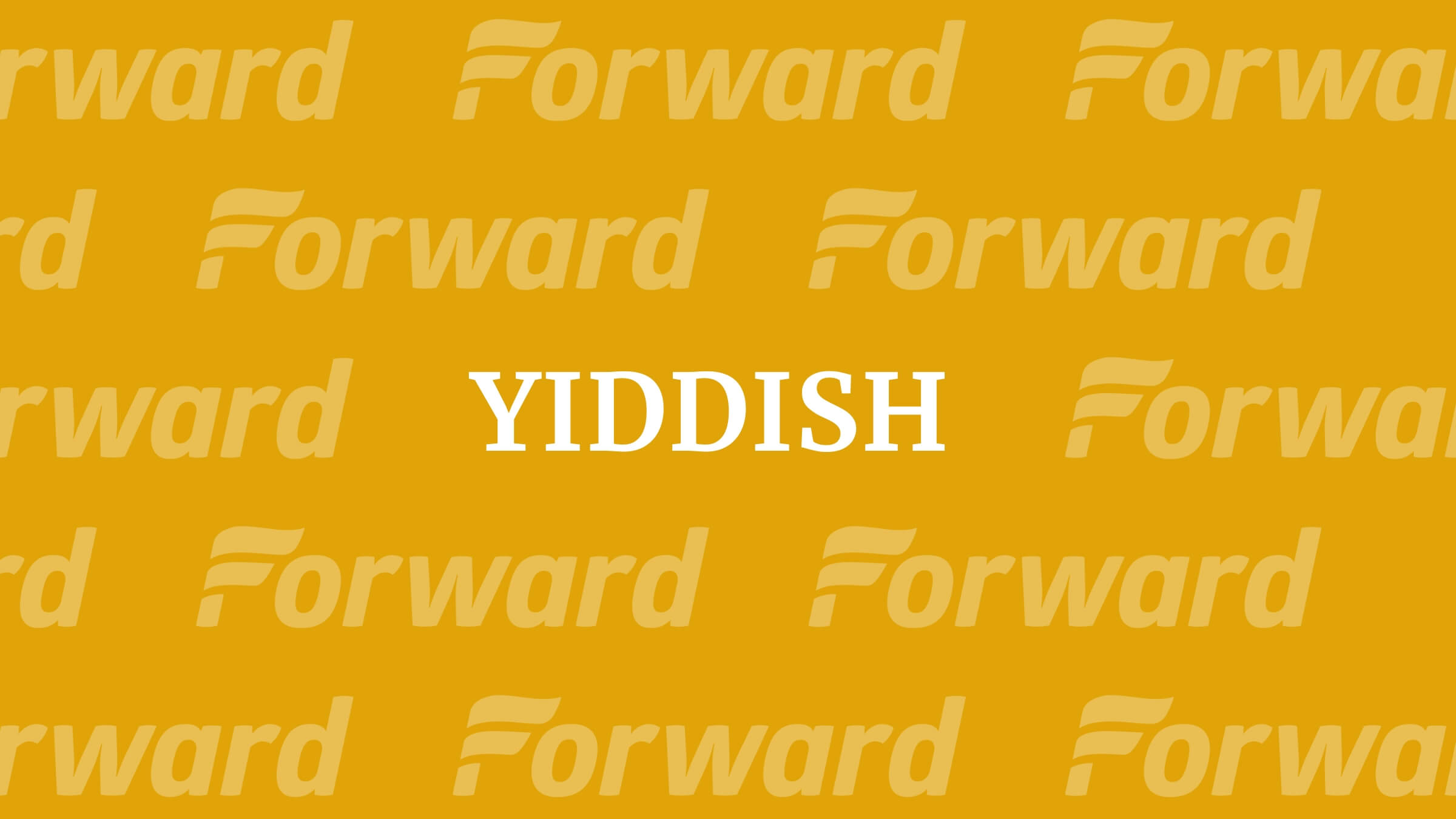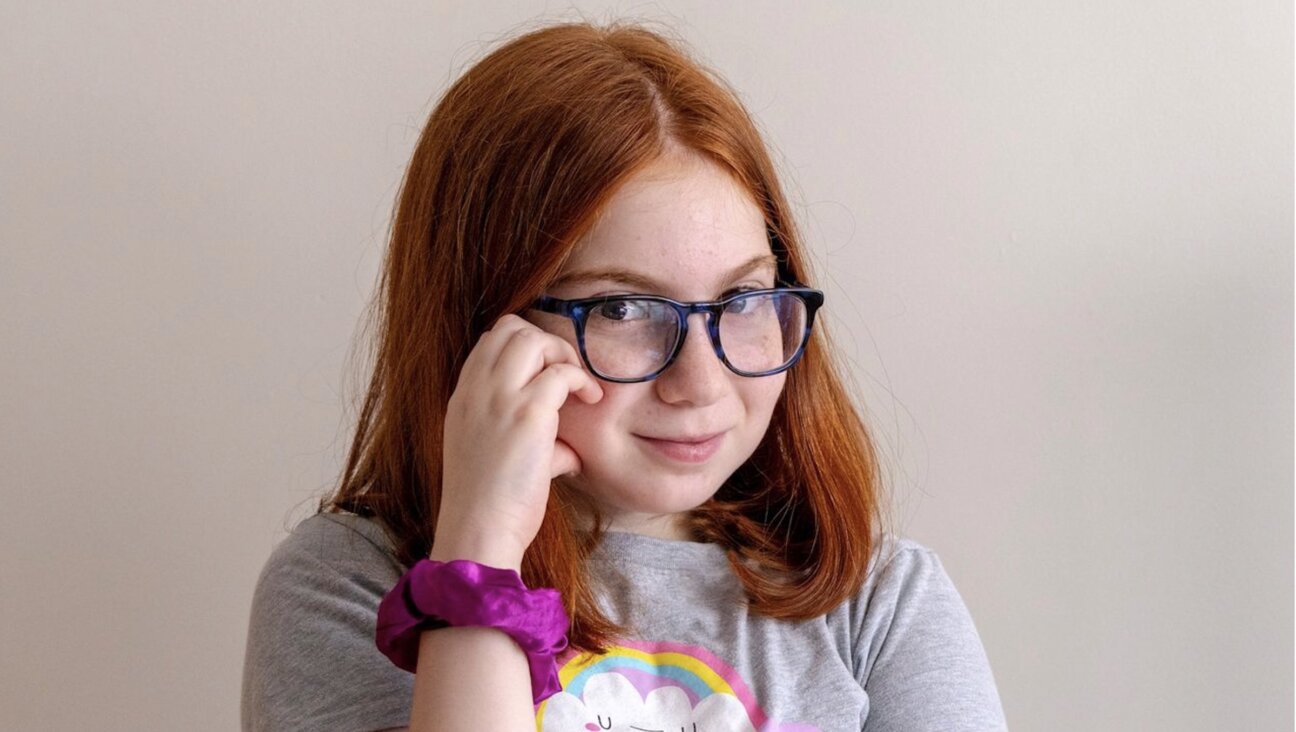How to Find Jewish Values … In Berlin!

Graphic by Angelie Zaslavsky
This article originally appeared in the Yiddish Forverts.
Regardless of how you feel about America’s current president, there’s at least one aspect of Trump that everyone can agree on: many Americans have become newly engaged in politics.
By the time the polls closed last November, only 55% of eligible Americans had even bothered to vote. Sensing this widening apathy, Jewish historian Jonathan Schorsch decided to take action. To re-engage today’s youth in politics, he founded the Jewish Activism Summer School
The program isn’t in the United States though, but in Berlin. One reason is that Schorsch, a professor at the School of Jewish Theology at Potsdam University, lives in Berlin now. But he also believes that Berlin is the perfect place to get the younger generation excited about politics. “It’s a vibrant and culturally rich city, with its own amazing history of activism, and as such we’ve attracted a diverse cohort from all over the world,” said Schorsch.
The program consists of three parts: the participants are first exposed to organizations that “repair the world.” The second part entails reading traditional Jewish texts and discussing how to apply them to contemporary problems. Lastly, participants volunteer with local organization and put these ideals into action.
Before accepting a position at Potsdam University a couple of years ago, Schorsch taught Jewish Studies at Columbia University. In some ways his move to Berlin represented a return to his roots, since his father’s parents were both German Jews. His grandfather was a well-known rabbi in Hanover, but after Hitler rose to power, the entire family fled to the United States. Germany’s fate sapped his grandparents’ desire to speak their native language, so Schorsch’s father never heard a word of German at home.
As a result, Schorsch found himself struggling with the language upon his return to the country of his grandparents. He admits to the difficulty of the language with a facetious grin. “Sometimes it feels like Germans have intentionally made the language more complicated than necessary in order to prove their intellectual prowess,” he said.
Although not all organizations that participate in JASS are Jewish, they nevertheless have a social activist edge that can be loosely interpreted as “tikkun olam.” For example, a Norwegian who once served as the warden of a “humane prison” in his home country will share his efforts with program participants. A second group aiming to eliminate food waste, distributes maps of places in Berlin where anyone can gather fruit, nuts, and the like growing on public land, free of charge.
A third organization participating in the program introduces a novel solution to solving community problems. The residents of a particular neighborhood organize a dinner where everyone pays a small sum to attend. During the meal, each participant has a chance to present a particular idea to the group for improving the neighborhood. At the end of dinner, participants vote on the project they found most appealing, and the winner takes home the collected funds in order to implement the idea. “These are just a couple examples of the numerous innovative organizations in Berlin today,” Schorsch added.
None of these organizations are under Jewish auspices, though. “The Jewish community in Berlin is a bit unusual,” said Schorsch, “On the one hand, there are a lot of younger people interested in Yiddish. On the other hand, Yiddish is rarely anyone’s mother tongue. Sometimes the local Jewish culture feels a bit artificial.”
Schorsch observes a contradiction: “A lot of Jews in Berlin want to experience authentic Jewishness exactly as it was in before the war, and yet very few Jews have been able to maintain their own family’s traditions.”
To complicate matters, very few Berlin Jews have a German Jewish family background. The majority came from the former Soviet Union, and Russian Jews have an entirely different perspective on what it means to be Jewish. As many as 15,000 Israelis may live in Berlin also, but it’s difficult to know the exact number, since few of them have any connections to the wider Jewish community.
So what’s it like to be a Jew in the same country that systematically murdered six million Jews? German children learn all about Jews in their history classes, Schorsch explained, and the German government has a particularly close relationship with Israel, but relatively few Germans have everyday social contact with Jews.
In his blog on Jewish life in Berlin, Schorsch describes a Jewish organization in Berlin that was founded to address this particular problem, called “Rent a Jew!” A teacher using a curriculum on the history of the Holocaust, for example, can contact “Rent a Jew”, and the organization will sends someone Jewish to share his or her life experiences. The students ask a variety of questions, some originating from insidious stereotypes, and try to debunk them through personal experience. This can serve as a powerful tool to combat anti-Semitism, Schorsch believes. Regarding the attention-grabbing title, he remarks with a smile: “Berliners love to be provocative, and the idea of ‘renting’ a Jew is a good example of that!”
Because German schoolchildren are exposed to the history of the Jews in their country, the average German is often more interested in Judaism than other non-Jews. This enthusiasm may have, in part, prompted Deborah Feldman, author of Unorthodox: The Scandalous Rejection of My Hasidic Roots, to move to Berlin a few years ago. She was recently invited to deliver a talk at a local brewery, and the room was packed with several hundred people. Schorsch, who was in attendance that night, was amazed to see how many Germans had come to hear a Jewish-American woman speak.
As an ethnographic experiment, a friend who attended with Schorsch informally interviewed several of attendees. “Her story is so moving!” one German woman exclaimed. Schorsch speculates that on the one hand it was fascinating for the Germans to have a chance to hear a first-hand Jewish perspective, but there could also be deeper psychological implications. Is it possible that reading a book that’s critical of Jewish society, written by a Jewish woman, in a small way alleviates German guilt?
Compellingly, the reason that Deborah Feldman gave for moving to Berlin is that it felt more “like home.”
“She was raised in a sort of European shtetl in America, Williamsburg, and she apparently found wider U.S. culture to be ‘empty of values,’” Schorsch mused.
Schorsch finds it a little ironic that Jews would move to Germany to find greater meaning in life. And then, catching himself, he added with a smile: “Then again, if I didn’t find living in Berlin to be meaningful, I wouldn’t have been promoting Jewish activism here.”















